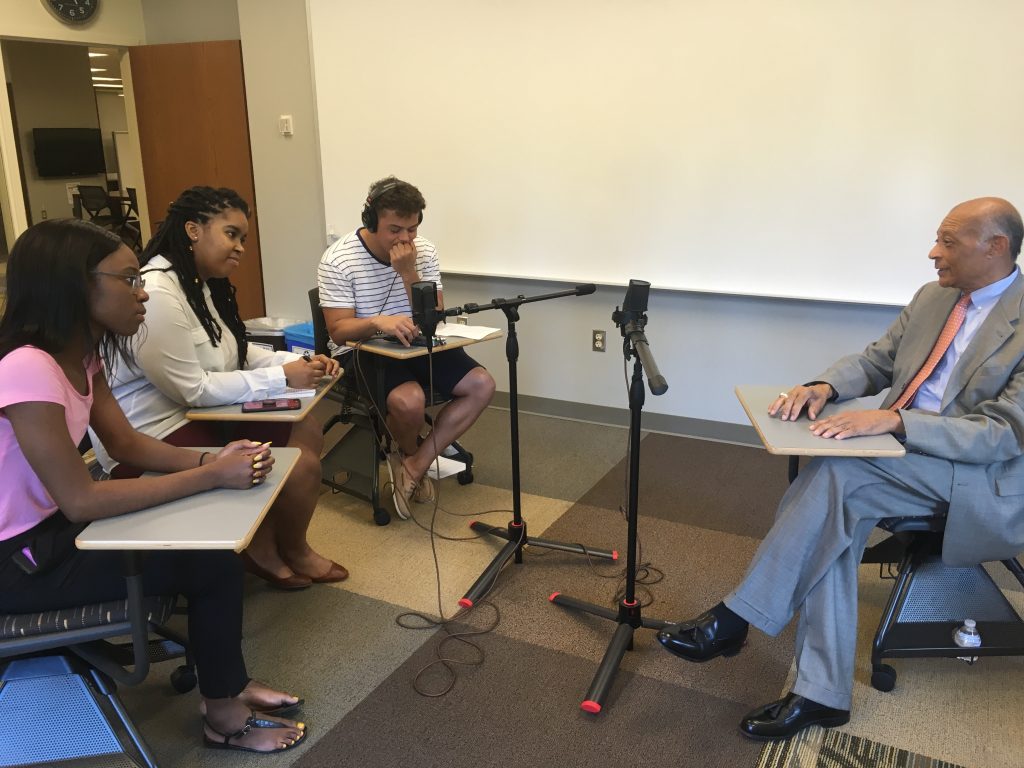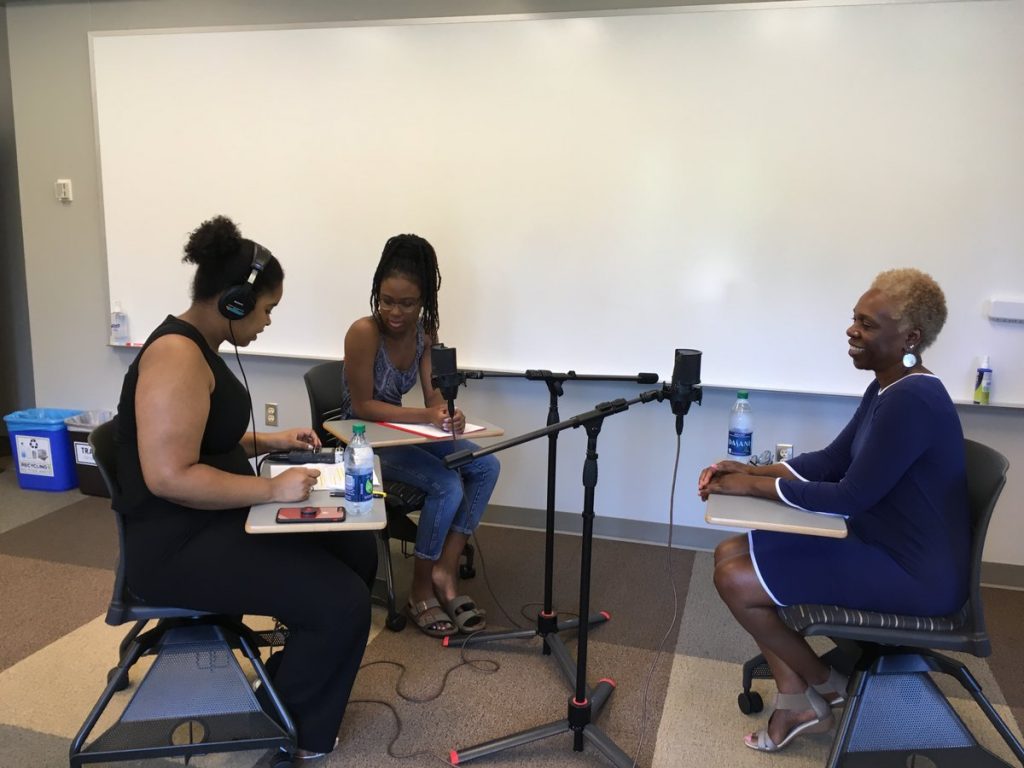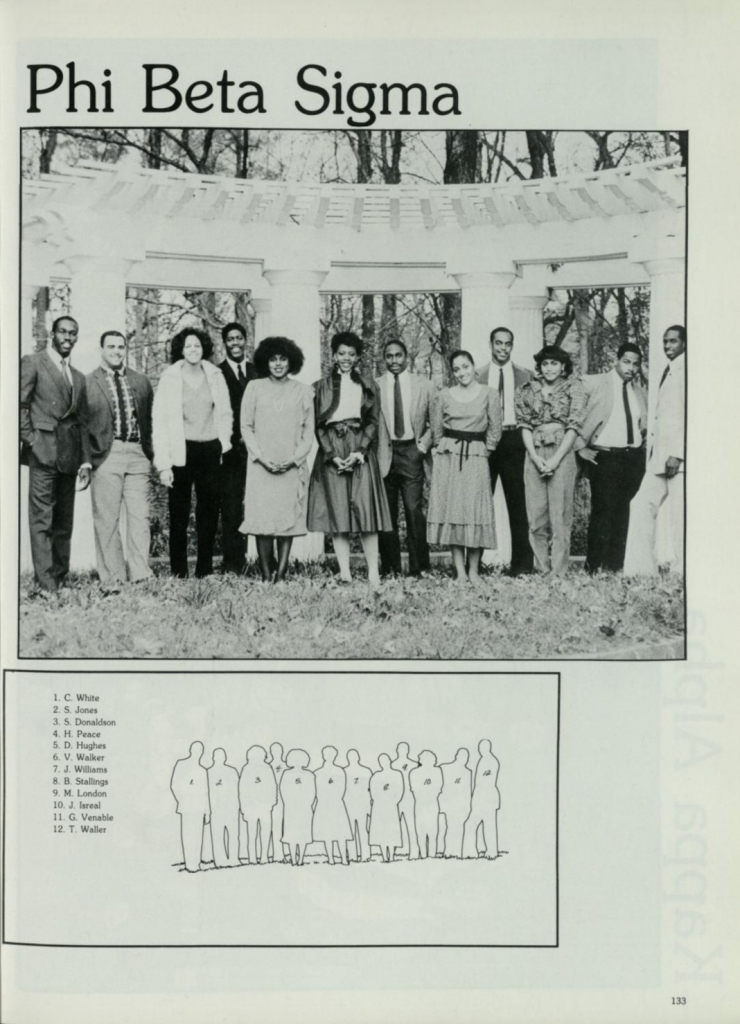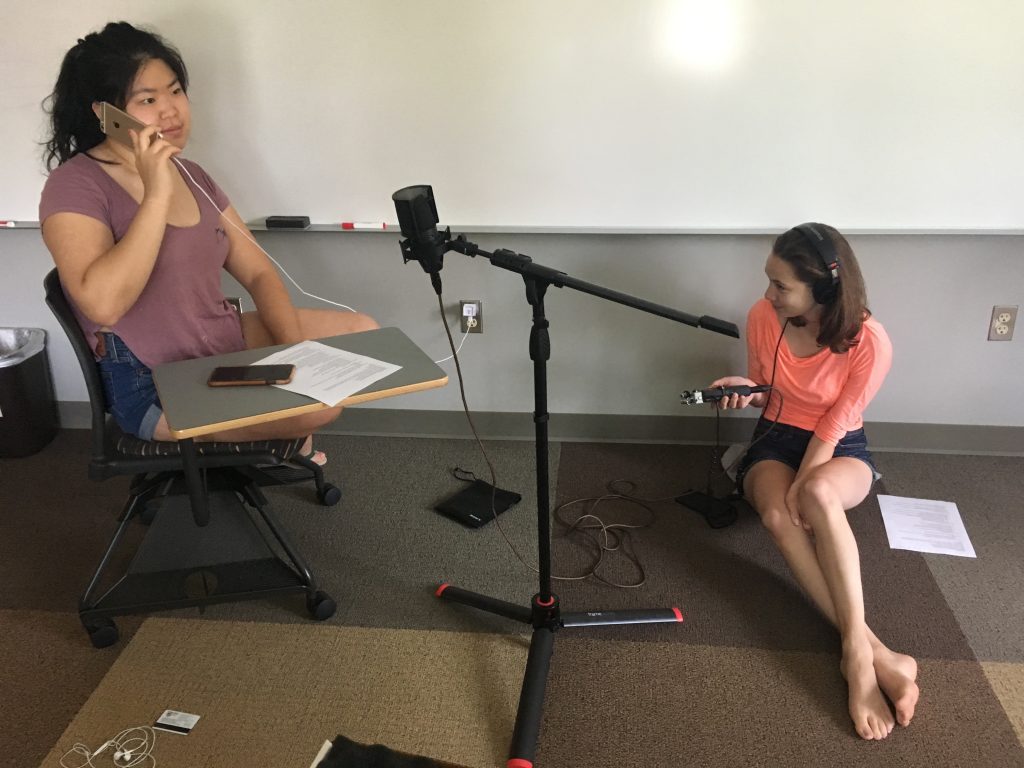by Jacob Roberson
Jacob Roberson is a rising senior on the varsity football team from Richmond, VA double majoring in psychology and sociology. He is a co-vice president of UR Mentoring Network, he is a part of the Dean’s Student Advisory Board, and during the 2017-2018 academic year he was an appointed student representative of the Presidential Advisory Committee for Sexual Violence Prevention and Response. Additionally, he has been inducted into numerous honor societies including Omicron Delta Kappa, Mortar Board, Alpha Kappa Delta, and Psi Chi. He joined the Race & Racism Project in the summer of 2018 as a part of Team Oral History and hopes to remain an active contributor and collaborator into and through the 2018-2019 school year.

I went back and read my second blog post about my preparation for interviews. I’ll tell you what, it’s hard to believe my summer with the Race & Racism Project is almost over. When I think back about what I expected to happen and what all has actually come about, I am nothing short of pleased, proud, and thankful for the opportunity to have been on the inaugural Team Oral History. In the weeks since conducting my first interview, I have sat in on three more interviews as well as had the pleasure of being the main interviewer of Barry Greene (’72), UR’s first black residential student. My approach to Mr. Greene’s interview was much different from my approach to my interview with the Mitchells because unlike either of the Mitchells, I already had some preexisting knowledge of who Barry Greene was.



